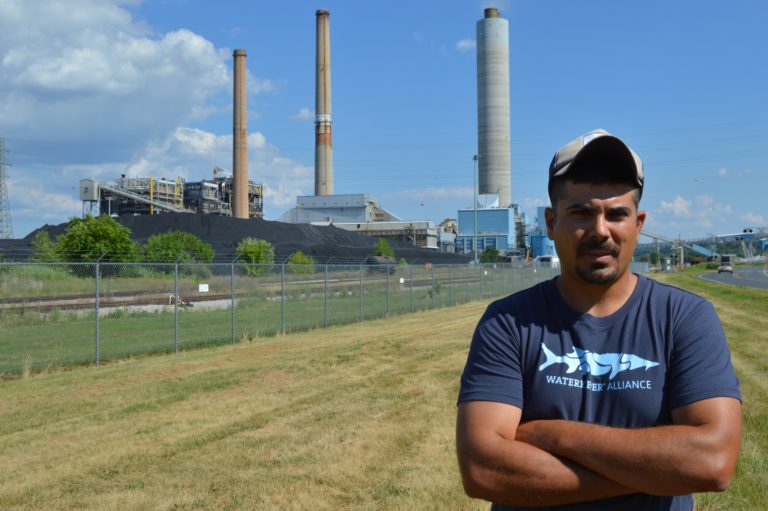Groups Notify Owners of PA Coal-Fired Power Plant of Intent to Sue Over Pollution in Susquehanna River
By: Waterkeeper Alliance

Toxic pollutants leaking from coal ash at Brunner Island Power Plant are infiltrating the river, a source of drinking water and popular place for fishing and boating
Four environmental groups today notified the owners of a coal-fired power plant on the Susquehanna River of their intent to file a lawsuit to stop toxic pollutants that are leaking from the plant’s coal ash landfills into the waterway, which is a source of drinking water and a popular destination for fishing.
The Environmental Integrity Project, on behalf of the Lower Susquehanna Riverkeeper Association, Waterkeeper Alliance, and PennEnvironment, notified the Talen Energy Corporation and Brunner Island, LLC, of their intent to sue for violations of the federal Clean Water Act at the Brunner Island Generating Station, located on an island in the Susquehanna River 20 miles southeast of Harrisburg.
The Brunner Island Generating Station in York Haven is discharging toxic pollutants including arsenic (a carcinogen), boron (which can cause nausea and vomiting), sulfate, and lithium from unlined coal ash waste ponds and a leaking coal ash landfill into groundwater, the Susquehanna River, and a tributary called Black Gut Creek. The plant generates 442,000 tons of ash and other coal combustion wastes annually.
“The Susquehanna River is critically important to the people of Pennsylvania—for drinking water, fishing and boating, and for agriculture—and the owners of the Brunner Island plant need to stop contaminating this public resource,” said Ted Evgeniadis, the Lower Susquehanna Riverkeeper. “They must be held accountable to clean up these coal ash basins not sometime in the future, but right now.”
Mary Greene, Deputy Director of the Environmental Integrity Project, said: “The Brunner Island plant is a poster child for the public health hazards posed by coal ash dumps across the country. It is also a compelling example of why power companies need to take responsibility and halt groundwater pollution.”
Sampling of groundwater and surface water around the Brunner Island plant revealed high levels of toxic metals and other pollutants that could only be explained by leakage from the coal ash dumps. This is a violation of not only the federal Clean Water Act, but also the Pennsylvania Clean Streams Law, according to the notice letter.
“We cannot let the Brunner Island power plant run roughshod over our cornerstone environmental laws,” noted PennEnvironment Executive Director David Masur. “It sends a dangerous message to industrial facilities in Pennsylvania if it pays to pollute.”
The Brunner Island power plant generates coal ash and other related waste that is dumped into basins that are often saturated with groundwater, allowing pollutants to leach and contaminate nearby water bodies, according to the notice.
The plant’s industrial waste ponds are not lined to prevent leakage. The facility also has a coal waste landfill with a liner, but it is not working adequately to prevent leakage. In the event of a breach, there is nothing but an earthen berm to keep over three million tons of ash and related coal wastes from entering the Susquehanna River and Black Gut Creek, according to the notice.
The state renewed the plant’s water pollution control permit on July 27, but the new permit still fails to adequately limit discharges from the ash ponds and landfill to groundwater or the Susquehanna River.
The Brunner Island power plant has been a significant source of air and water pollution in the region since it came online in 1961. In 2016, the plant added the capacity to burn natural gas in addition to coal, but its owners have indicated the facility will continue to burn significant amounts of coal for the next decade.
The Talen Energy Corporation and state or federal regulators will have 60 days to address the violations in the notice letter, after which point EIP’s attorneys, on behalf of the client groups, will file a lawsuit aimed at cleaning up the contamination and ensuring future compliance with the Clean Water Act and Pennsylvania’s Clean Streams Law.
“The pollution released by coal plants such as the Brunner Island power plant has real consequences for communities, both in terms of their health and their ability to use their waterways,” said Larissa Liebmann, Staff Attorney for Waterkeeper Alliance. “People have a right to drink their water and fish and swim in their river without fear of dangerous coal ash contamination.”
EPA imposed coal ash regulations in 2015 that require companies to monitor and publicly report contamination of groundwater by coal ash landfills and ponds. The regulations also require liners to be installed on new ash dumps to prevent leakage. The Trump Administration, however, in July issued new regulations to roll back these Obama-era rules.
Environmental groups, including EIP, Waterkeeper Alliance, and PennEnvironment, did secure a recent victory on August 21, 2018, when a federal appeals court struck down the portion of EPA’s rule that allows unlined ponds to continue receiving coal ash.